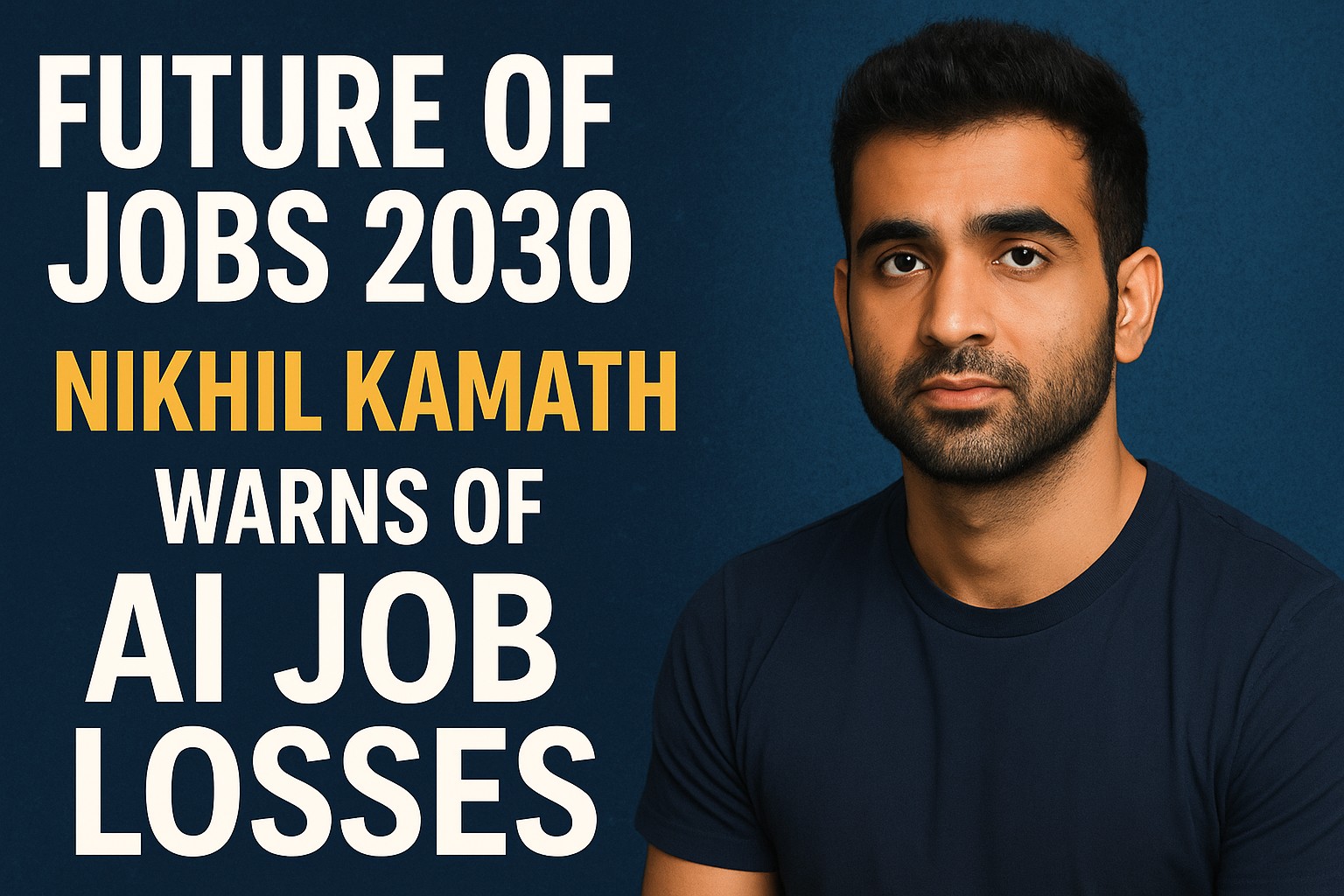Future of Jobs 2030 is a hot topic, especially with the rise of artificial intelligence (AI) and automation. Nikhil Kamath, co-founder of Zerodha, has recently warned that millions of jobs could disappear by 2030 as a result of these technological advancements. Kamath’s comments have sparked a debate on the changing landscape of employment and the roles that will be impacted.
1. AI and Automation: The Driving Forces of Job Losses
Kamath highlighted that AI and automation would be the primary forces leading to significant job losses in the next decade. Repetitive and manual labor jobs, especially in sectors like customer service, retail, and logistics, are expected to be the most vulnerable. With the rise of self-checkout kiosks in stores and AI-powered chatbots, many of these tasks are already being handled by machines.
Kamath noted, “The world of work is changing rapidly, and millions of jobs will be taken over by automation and artificial intelligence” (Source: News18).
2. The Rise of Tech-Related Jobs and New Skills
While some jobs will vanish, Kamath pointed out that tech-related jobs will rise substantially. He predicted a significant demand for roles such as AI engineers, data scientists, and machine learning experts. As industries increasingly rely on AI and cloud computing, the need for skilled workers in these sectors will surge.
The World Economic Forum’s (WEF) Future of Jobs Report 2025 also highlights that the fastest-growing industries will be driven by AI, data analytics, and digital transformation. Kamath added that cybersecurity experts, blockchain developers, and AI ethics professionals would be among the most sought-after roles in the near future.
3. What Jobs Will See a Decline by 2030?
Kamath warned that while AI would create many new opportunities, it would also lead to the decline of various traditional roles. For example, administrative positions like secretaries and clerks will likely be replaced by virtual assistants and AI-powered systems. Similarly, positions in basic finance functions, such as accounting and transaction processing, are also expected to see job cuts due to automation.
However, Kamath believes that jobs requiring human creativity, problem-solving, and emotional intelligence will be in demand. These positions, which can’t be easily replicated by machines, will remain vital in the future job market.
4. Upskilling: The Key to Surviving the Shift
As jobs evolve, Kamath emphasized the need for workers to upskill in order to remain relevant. He stressed the importance of learning skills that align with the changing demands of the workforce, such as coding, data analysis, and other tech-driven abilities.
The World Economic Forum also predicts that by 2025, 50% of all employees will need to reskill in order to stay competitive in the job market. Kamath’s advice is clear: “Adapt and acquire future-proof skills that will keep you employable as AI and automation transform the job landscape.”
Conclusion: A Transforming Workforce by 2030
The future of jobs in 2030 is set to be defined by rapid advancements in AI and automation. While these technologies may eliminate certain roles, they will also create new opportunities in technology-related fields and industries requiring human expertise.
As Kamath aptly pointed out, workers who embrace upskilling and focus on emerging technologies will be best positioned to thrive in this transformed workforce.
For further details, you can read the full article on News18 here.

